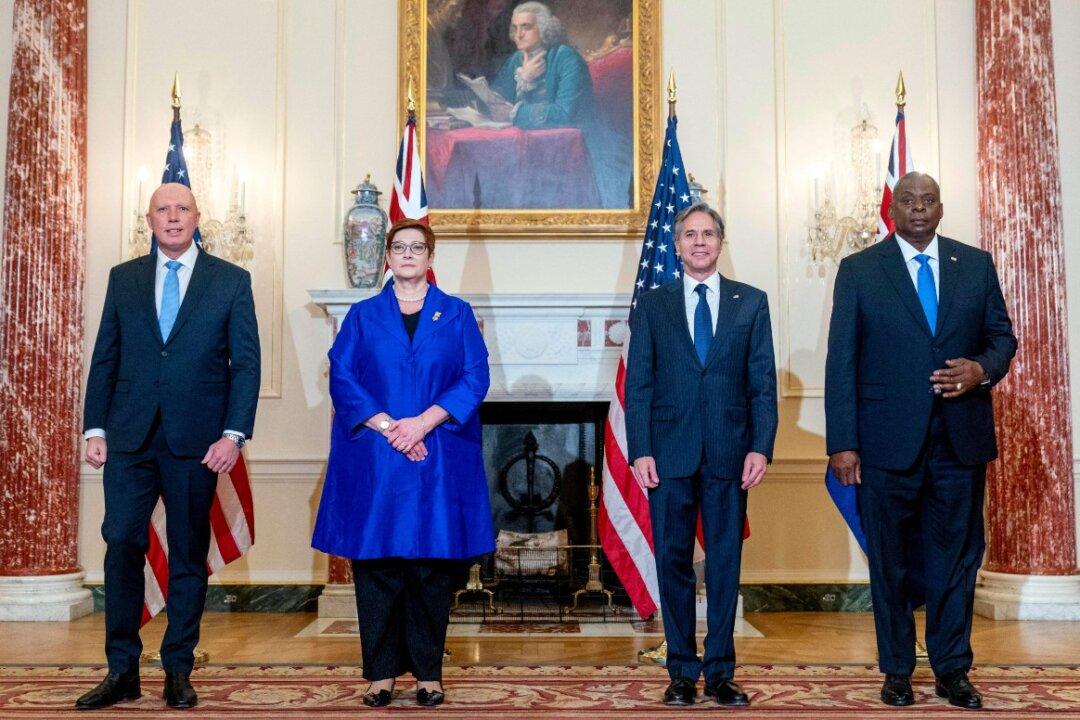The leaders of Australia, the United States, and the United Kingdom announced last week the formation of a new trilateral security agreement called “AUKUS.” The new security pact will oversee the development of a nuclear-powered submarine fleet in Australia and also focus on developing joint artificial intelligence, cyber warfare, and long-range strike capabilities.
Experts believe that the partnership will meaningfully augment the United States and its allies’ ability to effectively deter Chinese Communist Party (CCP) adventurism in the Indo-Pacific and that its mission-oriented multilateralism may provide a framework for future joint military efforts among democratic nations.




